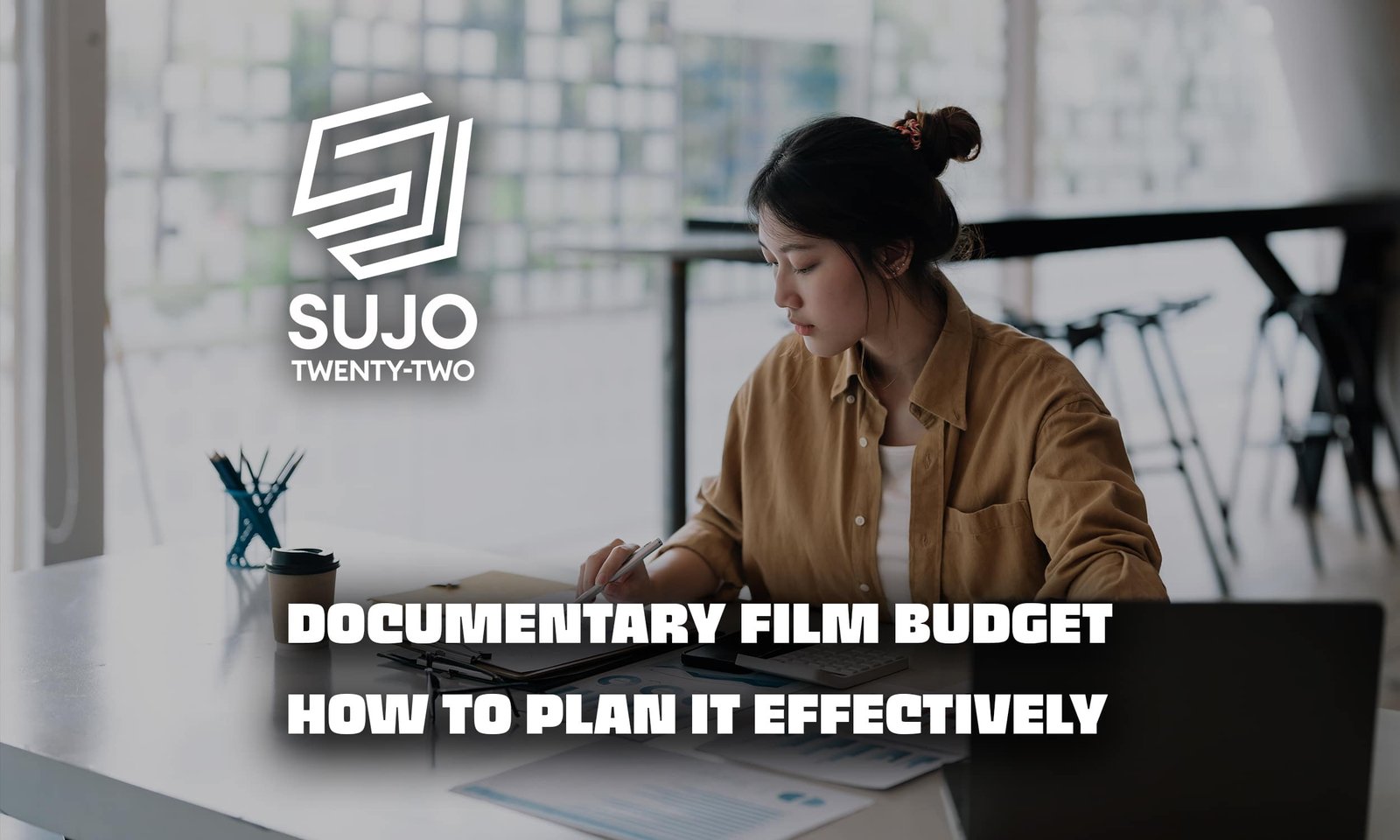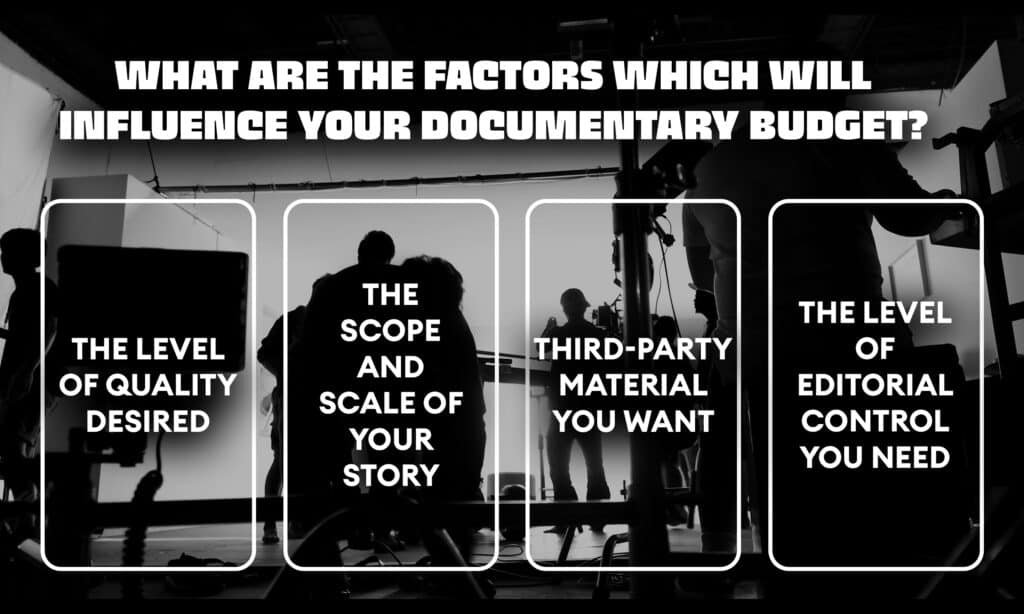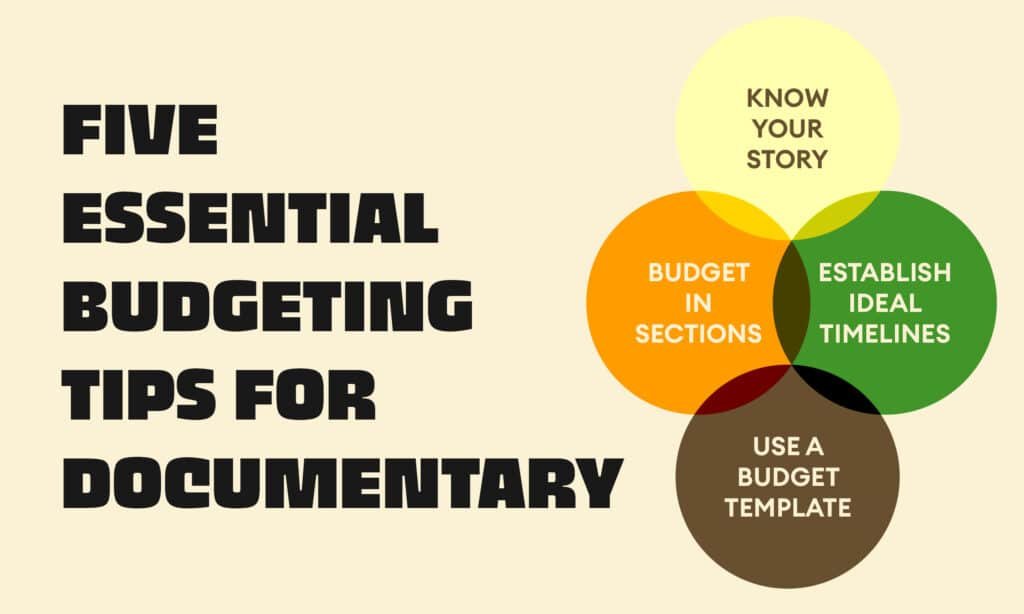
If you are hoping to make a documentary, the next thing that will come to your mind is the documentary film budget. Your mind would ponder on how much it will cost to make a documentary on your own.
First of all, you need to understand the factors that will influence your documentary budget. And then you have to come up with the most effective ways to minimize or limit your budget to what you expected.
In this blog, we will focus on some factors that can influence your documentary budget, and also, we will give you some budgeting tips that can be essential for you when creating your documentary.
What Is A Documentary Film?

A documentary film is a movie genre that is mainly used to document non-fictional content. The main purpose of a documentary film is to capture realistic situations or the realistic aspects of a particular topic.
The main characteristic of a documentary film is that it is a short film that contains a lot of information. Today, the length of a documentary is not limited to a time frame. It can be either short or long.
If you wish to learn more about documentaries, read our blog, “How to Work on Documentaries – A Basic Guide to Documentary Filming”.
What Are The Factors Which Will Influence Your Documentary Budget?

A documentary budget includes the approximate cost of the entire documentary film production. The production budget that is required for a documentary will differ from one documentary to the other. Several factors can influence the cost of a particular documentary, and now let’s look into those factors in detail.
The Level Of Quality Desired
The first factor that can influence production costs is the quality of the documentary. If you wish to create a high-quality documentary, it will be an additional cost for you. Most of the time, if you have a great story, sound, and other elements, you will directly decide to come up with a documentary that has top-notch quality.
Creating your documentary a high-quality one demands more money. It means you have to choose the best gear and equipment such as good sound systems and lighting. All these together will bring about a huge difference in the documentary film.
The quality of a documentary indeed adds more value to the film. But you should also be mindful not to exceed the budget that you can afford. It is because exceeding your budget can bring out difficulties in the post-production process and in managing other aspects that are relevant to the whole production.
Do not assume that only a high-quality documentary will reach a larger audience. Working with a tight budget will not be a problem if you have the right story that can be interesting to a larger crowd.
The Scope And Scale Of Your Story
The next crucial factor is the scope and scale of your story. This includes the shoot locations, the number of events, and the number of local crew members. The higher the number of locations, events, and crew members goes, that means the more you need to add to your budget.
If you wish to shoot in many locations or else if you have to travel a long distance to arrive at a shooting location, the film will be more expensive. In addition, if you are scheduling to shoot for more days, this also comes into the budget. On the other hand, if you hope to include more local crew members and events in your documentary, that also means extra expenditure.
The two phases that will consume a lot of time are the editing and post-production phases. Most of the time more time is spent in editing than the time taken to film it. This is something that a documentary filmmaker should be aware of. The editing and post-production needs should be systematically organized to suit your budget.
Another way to reduce production costs is to limit the number of days that you spend filming the documentary. Sometimes, simplicity can take you a long way. Having a short documentary with a short and interesting storyline will also help you in being successful in documentary film production.
Third-Party Material You Want
If you wish to include your favorite piece of music, film footage that you think is relevant to the documentary, or photographs that you can find on the internet, of course, you can do it. But you will have to pay for the rights before including them in your documentary. And these things cost too much.
Third-party material rights are quite expensive. Music and movie footage is usually caused by the seconds, and photographs per image. However, the costs may vary depending on the popularity of the content piece and where and how you want to use it. That means, if the third-party content is very popular or if your documentary is open to a larger audience, then that means, the rights will be very expensive.
What can you do to reduce these costs? The best solution is always to rely on your content, music, and photographs or try to find free content that is given free-of-charge from creative common sources.
The Level Of Editorial Control You Need
Editing which is one of the most essential processes in documentary films consumes a larger part of most budgets. As it is mentioned before, documentaries are about capturing the most realistic situations relevant to a particular topic. Therefore, there are few or no rehearsals when filming a documentary. This makes editing an important part of documentaries.
Since documentaries are natural, they do not have well-seasoned actors. Sometimes what they say or do is out of the director’s control. Whatever the actors do is captured and this leaves the editing team with a heap of clips that needs editing. This indeed will affect the costs of the documentary.
The editing process will not be difficult if you have your initial plan in mind. Then you know what to include and what to edit or delete. As you can see, the post-production phases can hype the budget if you do not pay attention to your initial plan for the documentary.
Five Essential Budgeting Tips For Documentary

Know Your Story
The first and foremost thing you must decide before starting to work on a documentary is the story or the objective of your documentary. This includes the storyline, the characters, the scenes, and the theme you are hoping to use in the documentary filmmaking process. With these in mind, you can project the necessary budget more effectively.
If you have the right objectives and an interesting storyline for your documentary, you can openly discuss with foundations, TV networks, and individual funders to sponsor your documentary filmmaking process.
Budget In Sections
Once you have a clear objective in mind, the next thing to do is to budget the documentary in sections. Sections in a documentary refer to the stages of video production. In this sense, a documentary will include stages such as the strategic development phase, pre-production, production, post-production, and distribution or promotion.
If you section your documentary this way, you can see how to divide the budget more conveniently. For instance, you know that the most amount of money will go to production and if you have locations nearby, the travel costs will be minimal. Therefore, this budgeting technique will help to see the necessities and how the funds are allocated.
Establish Ideal Timelines
The next most important thing in documentaries is to be very strict with the timelines. Spending too much time in one phase means too much money. The best way to manage the ideal timelines for this short film is by creating deadlines for each phase in the documentary filmmaking process.
This will help you to stay on track with your film timeline. In addition, having timelines will help you to complete and promote your documentary as planned.
Use A Budget Template
You must write all your expenditures accurately so that at the end of the day, you know how the money is spent. Therefore, always try to keep all the budgeting information in one place.
What is the best way to keep your budget information? If you are a person who prefers handwritten notes, then go for it. If not, you can always use google sheets to do the needful for you. If you are good at using spreadsheets, you may already know how accurately and cleanly you can list up your budgeting information in a google sheet.
Apart from google sheets, you will be able to find digital budgeting templates from the internet that will help you with keeping track of all expenditures.
Video Production Companies For Your Rescue

We hope you now have a better understanding of the importance of documentary budgeting and how it is done. The tip mentioned here will help you with cost predictions for your documentary project.
If you still have concerns about documentary filming, you have the option of reaching out for expert assistance. If you are a beginner, this will be an easy way for you to start your documentary journey. Experts will help you to make your vision come to life within the budget that you can afford.
FAQs
Making a documentary may not seem very profitable at first. Especially if you are a beginner, it is not profitable at all. But in the long run, making documentaries can be profitable if you know how to distribute and promote your documentary on media platforms.
Having a budget is important because it provides the filmmaker with a clear plan for making a documentary. A good budget can reveal a lot of information on how the documentary is made, the importance of the storyline, the crew in the film, the locations, and also the type of equipment and gear you are hoping to use.



